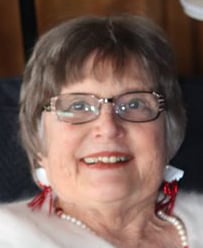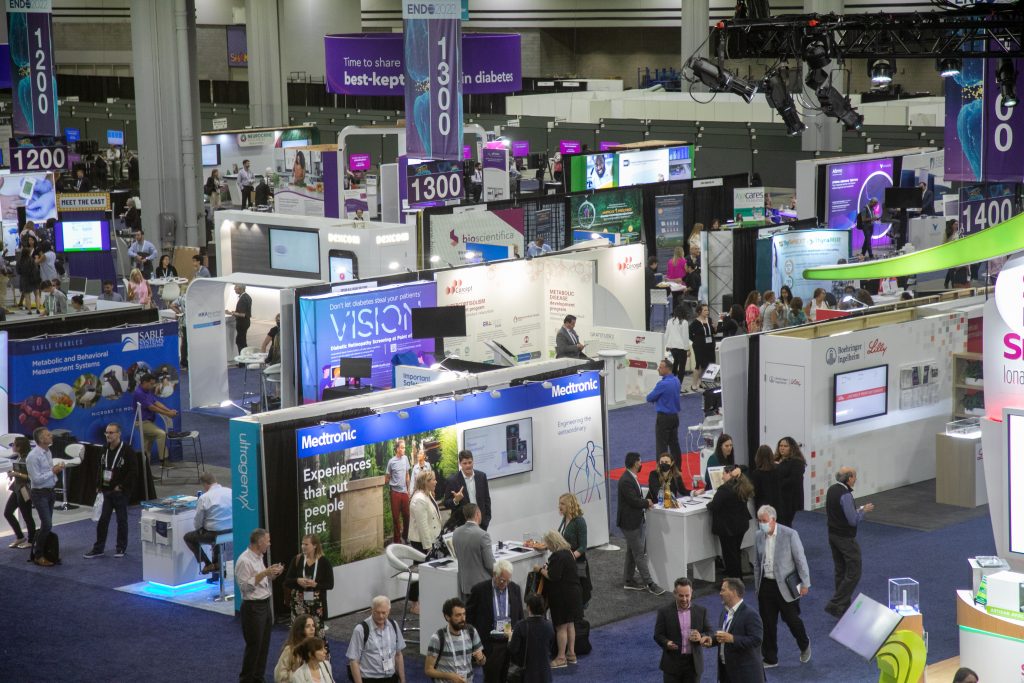
From her first ENDO in 1982, Ann Owen, MD, was concerned by the small number of women getting their research published. Forty years later, she relishes seeing how the latest generation is breaking new barriers.
My first Endocrine Society meeting must have been in 1982. I had signed up for the meeting of Women in Endocrinology because it sounded interesting. Most of the women at the meeting that year were present (spoiler alert: there weren’t many women back then), and the entire discussion was how to get the Endocrine Society to publish articles from their women authors in their two publications, Endocrinology and The Journal of Clinical Endocrinology & Metabolism (JCEM). There were multiple stories of articles reporting research by our own female scientists being rejected by the Society. It’s very hard to believe that those days occurred when we look back on the outstanding female leadership of recent times in our Society. And the group never lost hope, with Professor Rosalyn Yalow* bouncing around in the corridors between sessions, always smiling, happy, and encouraging all of us. Remembering her accomplishments, the rest of us felt motivated to realize our goals.
There was that Sunday morning discussion of stem cells at the San Diego meeting, a time when there was even religious condemnation of the idea of stem cells rife among the general public. As we listened to the presentation, a Southern California earthquake struck, shaking the hall briefly. And the lecturer immediately panned, “It’s God telling us this blasphemy must stop!”
Now most of us are together in person once more. My old research performed with mouse islets I had “fished” myself has given place to genetics, monoclonal antibodies, cytokines, CRISPR, and even artificial intelligence. We may feel a little bit like we’ve been passed by, but it sure is interesting to listen to the results of the new work.
I remember the years when I was the only endocrinologist in town who would accept (adult) trans patients. As a diabetologist, I had no preparation, so I read everything I could lay hands on that might be related. Then 15 or 20 years ago, the Endocrine Society hosted a presentation on the treatment of trans patients — pediatric, but it was a start — which was a rope thrown to a drowning adult practitioner. Then the next year, it happened again — there was another discussion of trans patients. I was getting some courage after learning that I had prescribed pretty valid treatments. For years now, there have been multiple sessions at every ENDO on the subject. Unfortunately, in the U.S., these patients no longer pass under the radar, but I am delighted to see the progress being made in helping them medically and psychologically.

Over the last 40 years there were happy meetings, with our heroes rubbing elbows with us, reunions with old friends, and I’ll admit I remember many years ago seeing a young scientist with a cardboard tube under her arm and feeling the relief of not being nervous about having to make a poster presentation myself; I had left hands-on research behind. Now I see these poster carriers and smile; they are carrying the torch for us.
I remember the Meet the Professor sessions that took place around a classroom table when we paid a bit extra for our brown bag lunches delivered at noon to the meeting site. Once I came racing in late for a session on hirsutism, and as I opened the door, the professor asked my name and where I was from. When I said I came from Belgium, he grinned and said “Get out of here! You have cyproterone,** so you have nothing to gain from this conference!”
And we happily stood in line to get our free meals, while “paying the price” of listening to an excellent presentation of endocrine products and new research that we hadn’t even realized we didn’t know about. Many young fellows and starting practitioners kept up their physical strength that way, and the informality encouraged us to ask questions and “get involved.”
Then in March 2020, four days before our flight was to leave Belgium to take us home, [director of the National Institute of Allergy and Infectious Diseases and the chief medical advisor to the President] Tony Fauci announced that antiquarians like us should stay put where we were. The next morning, ENDO 2020 in San Francisco was cancelled, as was our flight. We were locked down in Brussels for a year, but somehow three months after those urgent announcements, the Society put on a blockbuster virtual meeting! The quality was top rate, and there was even breaking news about COVID-19. My technical issues were a result of my IT inadequacies (my research was done on an old Wang computer), and my location in Belgium complicated things. Thankfully, [the Endocrine Society senior specialist, membership recognition and retention] Adey Hambissa’s endless patience in walking me through the problems kept me connected. The following year, 2021, we looked forward to getting together in person once again, but then we got another wave of COVID-19. The Endocrine Society simply put together another virtual meeting for ENDO 2021 (and yes, Adey bailed me out of my computer problems again!).
And we happily stood in line to get our free meals, while “paying the price” of listening to an excellent presentation of endocrine products and new research that we hadn’t even realized we didn’t know about. Many young fellows and starting practitioners kept up their physical strength that way, and the informality encouraged us to ask questions and “get involved.”
Now most of us are together in person once more. My old research performed with mouse islets I had “fished” myself has given place to genetics, monoclonal antibodies, cytokines, CRISPR, and even artificial intelligence. We may feel a little bit like we’ve been passed by, but it sure is interesting to listen to the results of the new work. And yes, Adey has already rescued me once this year!
*Yalow received the 1977 Nobel Prize in Physiology or Medicine for development of the radioimmunoassay technique. She served as Endocrine Society’s first female president in 1978.
** Cyproterone is an antiandrogen and progestin medication used in the treatment of androgen-dependent conditions such as acne, excessive body hair growth, early puberty, and prostate cancer, as a component of feminizing hormone therapy for transgender women, and in birth control pills. Available worldwide, it has not been approved for use in the U.S.

